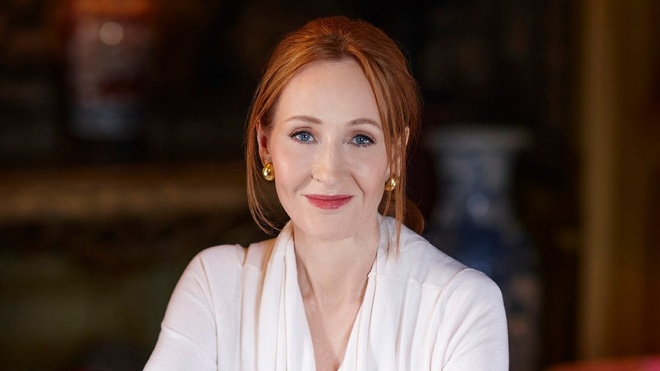
In recent years, JK Rowling, the renowned author behind the globally beloved Harry Potter series, has found herself at the center of controversy. What began as a simple assertion of biological truth regarding gender identity spiraled into a relentless onslaught from what can only be described as a “mob” of cancel culture activists.
The crux of the issue lies in Rowling’s refusal to conform to every facet of the prevailing narrative pushed by certain segments of society. She dared to express a viewpoint that, in any other era, would be considered common sense: that men are men, women are women, and individuals should be free to live as they choose. Yet, this seemingly innocuous stance drew the ire of a vocal minority intent on silencing dissent.
The tactics employed against Rowling are emblematic of a broader trend in today’s culture—a trend wherein disagreement, however slight, is met with fierce reprisal. The message is clear: toe the line or face the consequences. Rowling, to her credit, chose the latter path, defiantly refusing to capitulate to the demands of those seeking her cancellation.
Rowling’s Resilience Amidst Controversy
Despite the relentless efforts to tarnish her reputation, Rowling’s resilience has been nothing short of remarkable. Contrary to the wishes of her detractors, her involvement in the upcoming Harry Potter television series serves as a testament to her enduring influence and creative vision. While some may decry her participation, attempting to boycott the very franchise she birthed, the reality is that Rowling’s imprint on the Harry Potter universe is indelible.
It’s worth noting the irony of labeling Rowling, a pioneer in the realm of modern literature, as a “known transphobe.” Such a characterization not only oversimplifies her views but also undermines her contributions to literature and culture at large. Rowling’s legacy extends far beyond the pages of her books; it encompasses a generation of readers who found solace, inspiration, and wonder within the magical world she crafted.
Anticipation and Trepidation Among Fans
As discussions surrounding the new Harry Potter series intensify, there is a mixture of anticipation and trepidation among fans. Will Rowling’s involvement ensure a faithful adaptation true to the spirit of the original work? Or will external pressures dilute the essence of what made Harry Potter a cultural phenomenon?
The anticipation is palpable. Fans hope that the new series will capture the magic and depth of the original books, while also navigating the complexities of contemporary societal debates. The stakes are high, not just for the success of the series, but for the broader conversation about freedom of expression and artistic integrity.
A Beacon of Hope for Creators
Ultimately, the success or failure of the new series remains to be seen. However, one thing is certain: the resilience of JK Rowling in the face of adversity serves as a beacon of hope for creators navigating the tumultuous waters of contemporary discourse. Her unwavering commitment to artistic integrity and freedom of expression is a reminder that, in the battle against cancel culture, courage and conviction are formidable allies.
Rowling’s stance highlights a critical issue facing society today: the need to uphold the principles of free speech and the exchange of ideas, even when those ideas are controversial. Her experience underscores the importance of standing firm in one’s beliefs and the impact that a single voice can have in defending artistic and intellectual freedom.
Conclusion
In the face of overwhelming opposition, JK Rowling has demonstrated an extraordinary level of courage and conviction. Her refusal to be silenced by cancel culture activists serves as an inspiration to many and a challenge to the prevailing narratives that seek to suppress dissenting views. As the world watches the unfolding drama surrounding the new Harry Potter series, Rowling’s legacy of resilience and commitment to truth will undoubtedly continue to influence and inspire future generations of readers and creators alike.


